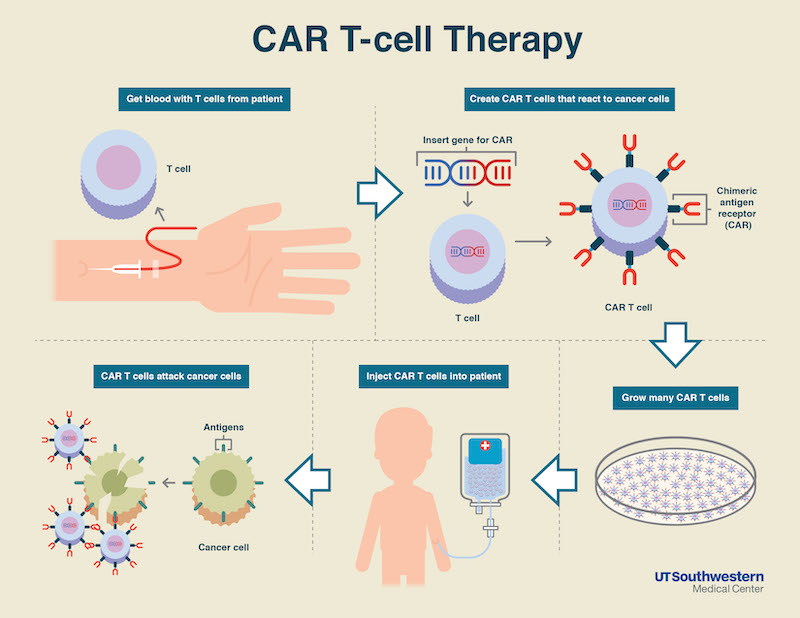 |
| Illustration of CAR T-cell therapy courtesy of UT Southwestern Medical Center |
The study conducted in the US, Canada and Europe involved 128 patients with multiple myeloma, a cancer of the bone marrow that steadily reduces the ability of the immune system cells to protect body from infections. The results were published in the Feb. 25, 2021 New England Journal of Medicine.



